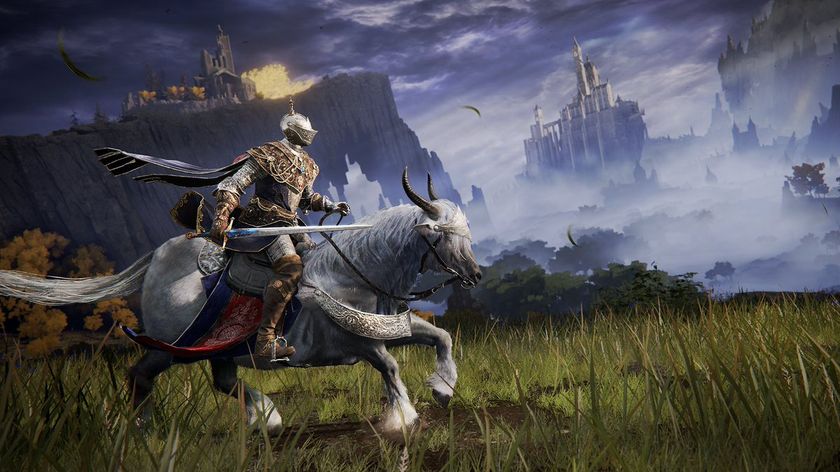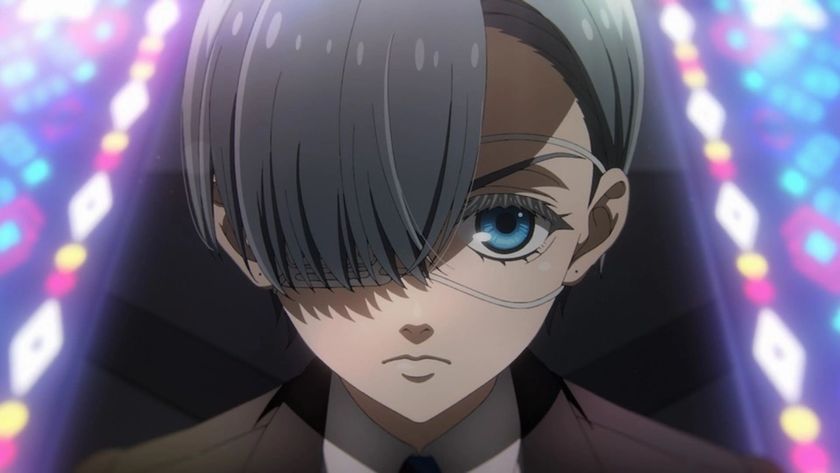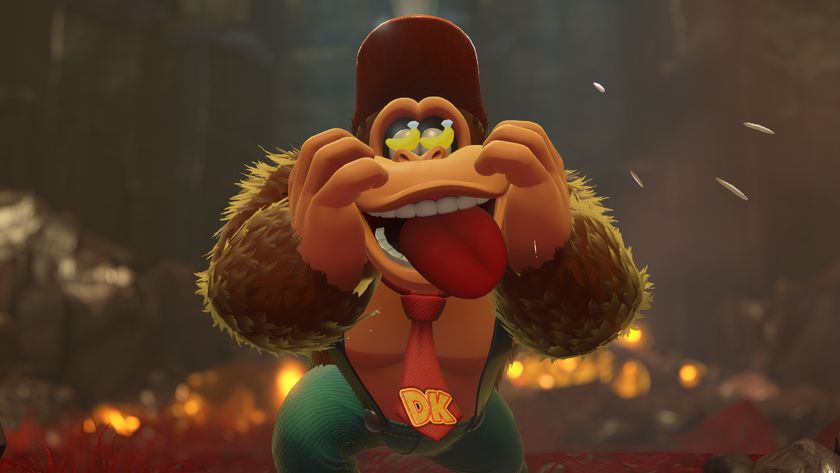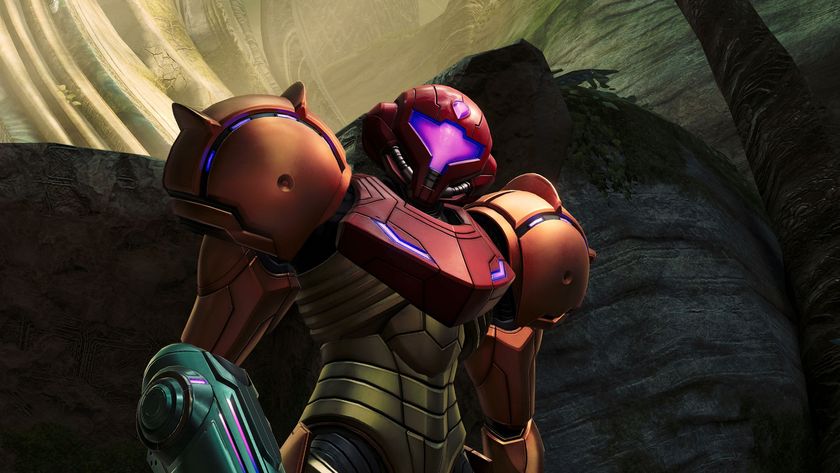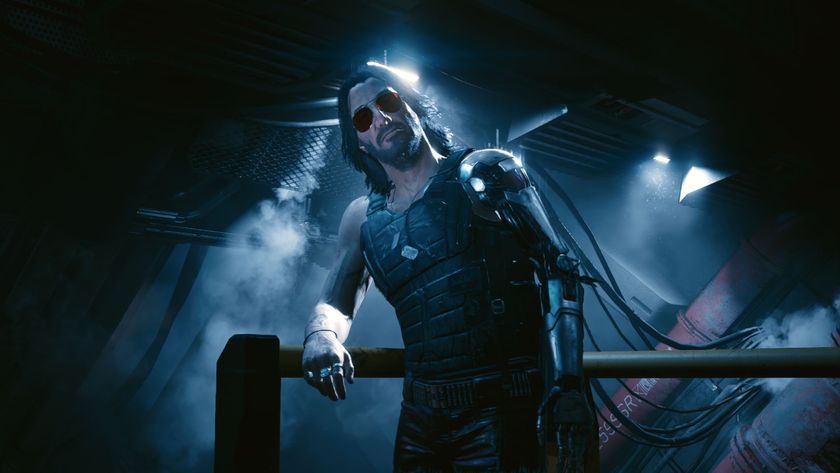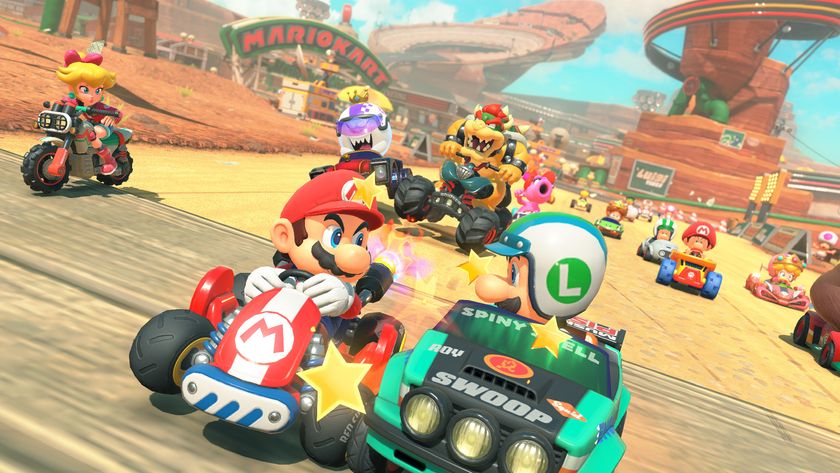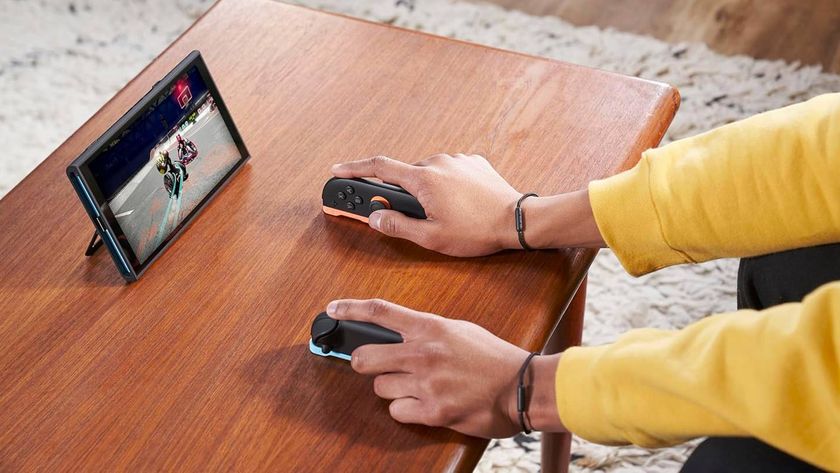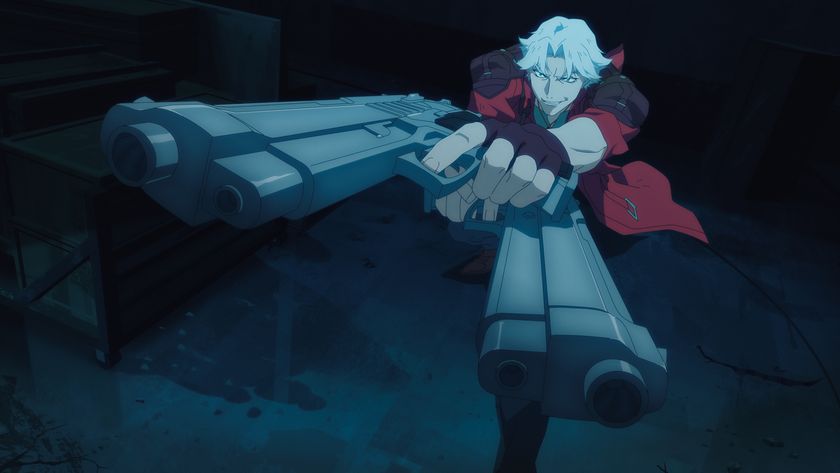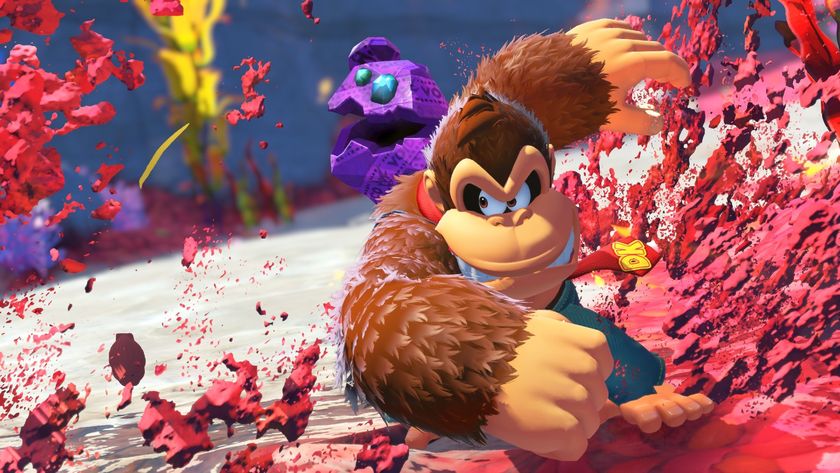Doug Liman talks us through making a star-studded heist movie in lockdown
The Edge of Tomorrow director details how he made his heist movie Locked Down with Anne Hathaway and Chiwetel Ejiofor
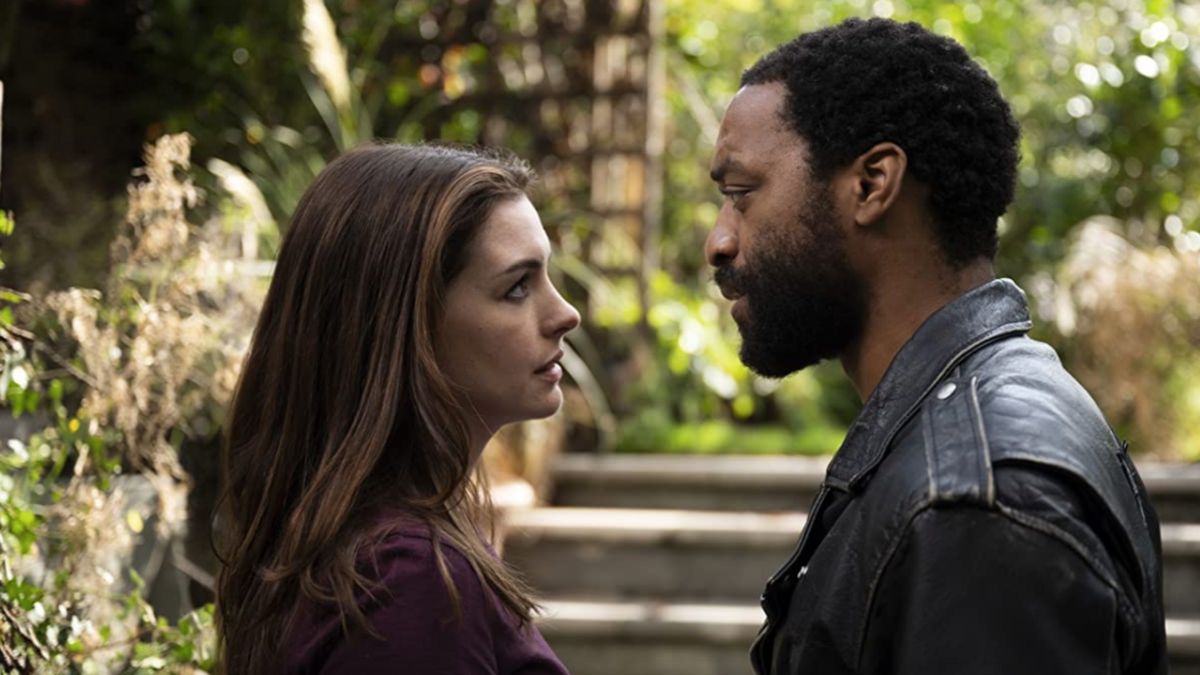
While the rest of us were watching way too much Netflix, Doug Liman spent lockdown busily working out a way to make a COVID safe movie. The result was Locked Down, a surprising heist that sees a soon-to-be-broken-up couple – played by Anne Hathaway and Chiwetel Ejiofor – robbing London's Harrods.
Working with Peaky Blinders creator Steven Knight, Liman quickly turned around Locked Down, which was released on HBO Max in January and is now coming to PVOD services in the UK. 12DOVE and Total Film spoke to Liman – best known for his movies Edge of Tomorrow, American Made, and The Bourne Identity – about the making of his COVID thriller. Here's what the director had to say (edited for length and clarity).
Doug Liman on the genesis and development of Locked Down, in his own words
The timeline was that on July 1, a producer said to Steven Knight and myself – and I'm being honest with you, it doesn't make us necessarily look good – he said to us: "Every actor on the planet is available. There isn't any movie shooting. Why don't we write something to shoot this September?"
That was the inception of the idea. There was no idea. The idea was that every actor was available. I mean, they're available because there's no way to be able to make a movie. But we're like, "Let’s try to write something that we could shoot. Let's think about COVID, and write something that could be made during a lockdown."
That meant: "Let's limit how many actors actually appear onscreen, versus actors that might appear via Zoom and FaceTime." Pretty quickly, it evolved from this Machiavellian 'Here’s an opportunity' to 'Wow, we’ve been living in this pandemic for four months. We have a lot to say.'
We pretty quickly gravitated to telling the story of a couple that had decided to break up, but were forced to quarantine together. And, you know, people are having so many different experiences during this pandemic. We all have friends who are having, you know, the most lovely time because they're locked up with their loved ones, and their kids, and they're just frolicking. And I know other people who are having a miserable time.
"We pretty quickly gravitated to telling the story of a couple that had decided to break up, but were forced to quarantine together"
Doug Liman
Steve and I were interested in looking at the people having a miserable time during this pandemic. We're telling it in a fun way, but looking at the people for whom being locked down was going to be hell, because they're being locked down with somebody they've broken up with.
Sign up for the Total Film Newsletter
Bringing all the latest movie news, features, and reviews to your inbox
Once we said that every actor's available, we said: "A heist would be interesting during these times because everything's locked down. Everything's closed. What could you do now that you couldn't do in a previous year? Certain things would be easier. Certain things would be harder."
It's very hard in London to do anything incognito because you’d be the only car on the road. Everything's unguarded in a way, because the staffing's reduced. But as you see when you watch the movie, the heist got pushed more to the side. We became really interested in the human toll of the pandemic, and the struggle of people trying to survive being locked down, and how it causes them to re-evaluate their life decisions.
It led us to a really unique approach to a heist film where the impetus to do the heist mirrored our impetus to go make this movie. Which is, "Why not go try to make a movie during the pandemic?" That's basically the motivation for the heist. It's like, why not try to take advantage of this opportunity and rob Harrods? These characters, in any other circumstances, in a million years, would never think of doing this. But these are not normal circumstances. These are not normal times. These characters – who, under any other circumstance, would never, ever think of robbing Harrods – think, "Why not try to do this?" You end up with a really unique heist where the biggest stake of the third act is: are they actually going to go through with this or not?
The heist is borne of the pandemic. It's not like we had some old heist script and were like, "Let's just shoot it during the pandemic." We conceived of this in July, four months into the pandemic. We'd been living with the pandemic for four months. We started with a blank piece of paper, and wrote something that is of this moment. It's really the first post-pandemic movie.
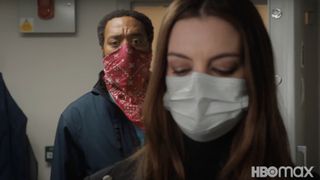
We then needed Harrods. We were like, "It's going to be a heist of Harrods." We decided it should be Harrods. We went through a lot of options. "Are they stealing the Crown jewels or this or that?" But we were like, "It should be Harrods."
So then we approached Harrods, who, under normal circumstances – you're going to hear me from this a lot, "under normal circumstances", because nothing was normal about it. Under normal circumstances, Harrods would want to see a finished script, and they'd want a couple of months, and then they almost always say no. They never let movies shoot. But these are not normal circumstances. Steven Knight and I just pitched them a rough idea of what the movie's going to be, and said, "We're only going to write this script if you’re in, because we don't have a plan B. It really has to be Harrods." And they said, "Yes." Because these are not normal circumstances. Brick and mortar retailers are struggling too, not just human beings.
I don't know why Harrods said yes. It's not how big corporations normally act. Human beings can act that way. It's one thing for the writer and the director to be like, "Let's do this crazy thing." It's another thing for a giant corporation like Harrods to sign onto this crazy endeavor – but they did.
"We started with a blank piece of paper, and wrote something that is of this moment. It's really the first post-pandemic movie"
Doug Liman
It was like, "OK, Steve, I hate to say this to you, but you've got to start writing. If I'm going to shoot this in September, you have to start writing. I know you're taking a big chance because you have to put the time in first. Ultimately, I, as the director, am going to spend more time on this movie than you are as the writer, but I can't start my work until you do your work first, and you're going to have to take a chance. Because no one's getting paid. We're just doing this. You're just going to have to roll up your sleeves and take a chance that if you write this, I will go make it, and that the pandemic will allow us to shoot." Which is the biggest unknown of all because there were no films in production when we started this, and the idea of an independent film going into production seemed impossible.
There were bigger movies like Tom Cruise's Mission: Impossible that were planning to go back into production, but they had giant studios behind them, and a lot of them had insurance policies from before the pandemic. So we're like, "Steve, even if you write this, and even if I say I want to direct it, we don’t know if it can get made."
So he had to take the first chance and start writing. And he wrote the first 50 pages. They were so brilliant that I was like, "We're making this movie."
I sent it out to financiers, who would normally want to see, in normal times, a finished script. But it's not normal times. I was like, "I'm shooting this in six weeks. So are you in?" We raised the money. And then I sent it to Anne Hathaway and Chiwetel. Again, under normal circumstances, they would want to see a finished script. Anne Hathaway's agent arranged for me to call her and explain to her why she was only getting 50 pages.
I get on the phone with her to talk to her about some of what I'm telling you. She says, "Save your breath. I've already read the 50 pages. They're brilliant. I’m in."
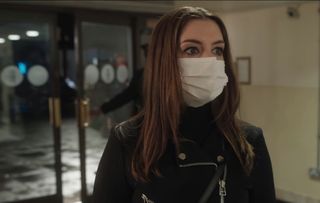
She was my first choice. And Chiwetel. The first choices jumped right in. I told them where the script was going to go, but I was like, "Steve's writing it as we speak."
That level of enthusiasm and courage to just jump in without knowing exactly where it was going to go, they brought to the set every day. They brought it to the performances every day. They know they're taking a big swing as actors. It shows up on screen because sometimes you see movies where everyone is holding back a little bit, or it's overdeveloped and over-polished. But in this case, we're going to shoot Steve Knight’s first draft. I'm shooting it so quickly, I'm going to have to go with my gut on how the scene’s going to play, and I'm going to shoot that version, and not cover my ass. There's nobody covering their ass in this movie, least of all the actors. They're just going for it.
It was a small crew, but it was a real film crew. I think the speed at which we were shooting, it didn't give people a lot of time for second-guessing. I'm not sure second-guessing helps anybody. Certainly, for me, my first instinct is usually what's right. So in this case, there wasn’t a lot of time between first instinct and shooting it.
Everybody involved in making this movie has something to say about the story. There isn't anyone working on this movie who wasn’t living in a pandemic while they were making it. It's not like this is Steve Knight's sole baby because he wrote it. It's not some unique experience that Steve had and that he put on screen.
Everybody brought to the process their own experiences, and everybody had something to say about what we’re all going through.
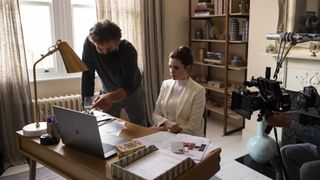
"I'm just never going to hear the word 'impossible' ever the same way again. That's not going to exist"
Doug Liman
My takeaway as a filmmaker – and as a human being – is that we sat down on July 1 to do something that was impossible. It'd never been done before. Impossible. And we pulled it off as a team working together.
Humans throughout history have accomplished impossible things. But to now have had an experience myself, has really inspired me as a human being and a filmmaker. I'm just never going to hear the word "impossible" ever the same way again. That's not going to exist.
I'm already somebody who didn’t take kindly to people saying something wasn't possible. But I just can’t imagine a producer or a studio or anybody saying "impossible" to me, and it resonating anymore. Because this experience has shown that when people work together – granted, the pandemic brought us together as a film crew in a way that is truly unique.
If you saw us cry – not hugging, but crying on the last day, as we were saying goodbye… You know, we all… It wasn’t…
I think everybody recognized that, like, no matter how tough this pandemic is, if we all work together, there isn’t anything that’s not possible. As a filmmaker, I’m hoping that this gives me even more courage to push myself – and I imagine it will.
Locked Down is available now on PVOD in the UK and on HBO Max in the US. Get the best HBO Max prices.

Jack Shepherd is the former Senior Entertainment Editor of GamesRadar. Jack used to work at The Independent as a general culture writer before specializing in TV and film for the likes of GR+, Total Film, SFX, and others. You can now find Jack working as a freelance journalist and editor.

